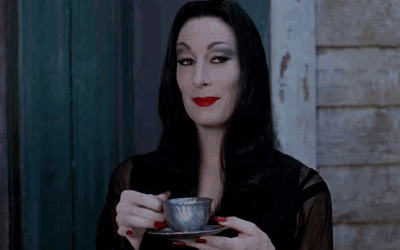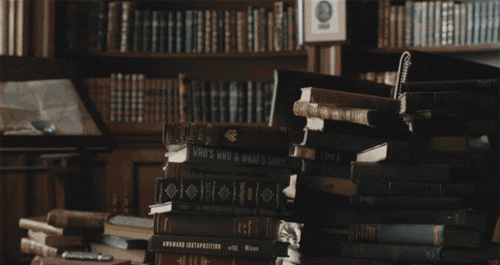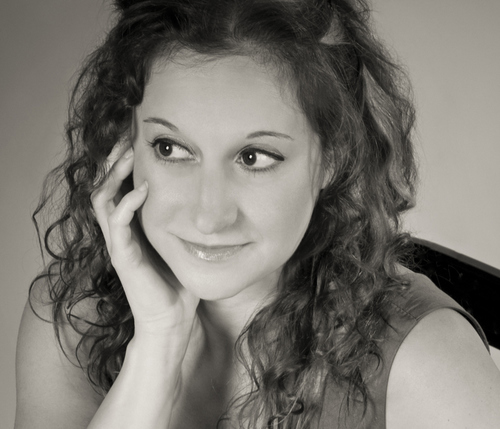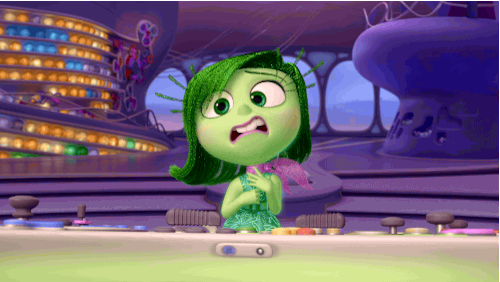I am excited to be a part of this years YA Shot Blog tour! A bookish event that you can learn about by clicking on the logo below!
In today's post I will be interviewing the one and only Alexia Casale! Director of YA Shot and the author of 'The Bone Dragon' and 'House of Windows'.
The interview will be split into different parts; Publishing, Agents and Libraries; Further Reading and Favourites; and lastly; My Work.
So now for the interview!
Publishing, Agents and Libraries
What Advice could you give to unpublished authors on how to get published?
First, make sure you want to get
published for the right reasons. If you’re after fame and fortune, you’re
better off entering X Factor. On average authors earn £11,500 per year. Very
few are famous beyond their own literary circle. If you want to be an author,
do it because you sincerely believe it will make you happy and give you a
fulfilling life, even if you never make much money and hardly anyone ever knows
your name.
So you’re sure you want to be a writer
because it’ll make you happy?Go and write at least half a million, if not a
million, words inpractice stories and novels and novellas and scripts. Don’t
beat yourself up if they’re no good, but do try your best. Keep going, even if
you think you’re writing rubbish. You’ll get better: that’s the whole reason
you’re doing all this practice.
So you’ve written at least half a
million practice words? Fantastic! Now join Twitter and follow a whole bunch of
writers, editors, agents, publicists and bloggers in the area of publishing
you’re interested in. Don’t try to sell yourself or your work, just talk to
people about stuff that legitimately interests you. Also, think about joining
something like the Society of Children’s Book Writers and Illustrators. Plus a
group where you can get criticism: an online writing group, or a library-based
writing group, or a course, or something like Golden Egg. But make sure you
have access to feedback from people who aren’t just friends and family.
Now, start showing people your work
and using the feedback you get to make it better. And better. Keep going until
there’s absolutely nothing more you can do. This is the time to invest a bit of
money in some top notch professional feedback. It may not be necessary for
everyone, but for most people it will save a lot of time and, ultimately, it’ll
save money too. If I were doing it again, I’d save up and hire a good freelance
editor for at least one thorough edit and one secondary edit.
Done? You’re ready to start thinking
about agents.
What advice could you give to authors looking for reliable agents?
Nowadays there is a lot more
information on agents than there used to be. And it’s really important stuff.
Think about the agents you know on
Twitter. Who seems like someone you’d like to work with? Who represents authors
whose work is vaguely similar to yours? Taste is an important issue here.
Agents also have to feel that they can work well with you and for you, so
professional ‘chemistry’ is not to be dismissed. Create a shortlist of 4-6
agents. Now go and check out their submission requirements on their website and
start building a submission package (and don’t cheat the requirements). Also
read stuff by at least 3 or 4 of the authors each agent represents. Which
authors would you most like to sit beside in terms of their work, not just
their success?
Now try to go to events where you can
meet agents. Take a deep breath, introduce yourself and pitch for 1 minute or
less (seriously, do not go over 1 minute initially). If they’re not interested,
just ask them questions: be interested in the opportunity to talk to publishing
professionals even if they’re not buying what you have to sell…
That’s a good bottom-line in all of
this: be interested, work hard and be nice to everyone. If you aren’t having a
lovely time with all this, are you really after a career as an author because
it’ll make you happy and give you a fulfilling life even if you’re never
remotely rich or famous? In everything you do be courteous and passionate about
books. Above all, be grateful when people give you their time, perhaps
especially when you don’t get what you want: no one owes you more time or a
longer answer or a book deal, but often agents and editors feel bad all the
same to know they’re disappointing people. There’s no harm in asking nicely,
but don’t push and don’t demand. Be grateful for whatever you get. People will
remember bad manners – they will also remember the people who behaved
professionally and appreciatively. I know it’s hard, but that’s the gig.
I know that growing up, libraries had a major influence on my love for reading especially due to the countless book related activities found. So my question for you is, do you think libraries still encourage children to have a strong passion for books and are there more things you think could encourage people to read that aren't currently being done?
It depends a lot on the library and
their resources, especially the people who work there. Hillingdon Borough
Libraries, who I’m working in partnership with for YA Shot, are amazing. At a
time when libraries are closing and restricting their hours, they’re improving their
facilities and spaces and opening for longer.
I agree that events are critical.
Things like the Summer Reading Challenge are fantastic for younger kids, but they’re
arguably even more important to get teens into the libraries as attendance in
this age group drops of dramatically. Volunteering schemes are a great way to
tackle this: volunteering is a reward in itself, but it also gives you a set of
people to work with and hopefully become friends with. It’s good for CV points
and, when you can’t afford to intern for free, volunteering and work experience
are vital.
Individual events – like the events
in YA Shot’s Year Long Legacy Programme -
I think events themselves – even
one-off events – can have a real impact. People in Hillingdon will be able to
afford to get to and buy tickets for YA Shot. They’ll see just how amazing and
broad and inclusive and welcoming the publishing world really is. If even one
of the kids who comes decides to go to university and perhaps pursue a career
in publishing, that’s a big win. And that’s partly where our year-long legacy
programme comes in. There’s so much evidence now about the enormous impact a
single author visit can make, especially in encouraging aspiration to careers
in the arts and a passion for reading and writing, including among reluctant
readers and readers with special needs. Our Legacy programme should reach over
1000 children, bringing them into the libraries to show them all the
opportunities available them and putting them in a room with an amazing author
to inspire them.
Further Reading and Favourites
Do you have a book or series that got you into reading?
Yes and no. My grandparents told me
stories and my parents read to me, and somewhere in there one of my earliest
memories was knowing I wanted to be a writer. But, being very dyslexic and
dyspraxic, I was 10 before I really began to read properly. And one of the
things that got me there was The Famous
Five books: I enjoyed the adventures but the key thing was the language. If
you’ve read them you’ll know the vocab is pretty simple and also very
repetitive: the perfect formula for kids who’re struggling to get to grips with
reading. Anyway, just as I got to the breakthrough point in my reading, my
father brought me a whole box of Famous
Five books. I read my way through them and, by the time I got to the bottom
of the box (quite fed up of all five of the Famous
Five), I was reading fairly fluently, albeit slowly. So I’m grateful to
those books even though I doubt I’ll ever re-read them.
Without these books I might still not
be able to read very well. Not only would I have lost my favourite leisure
activities, but every aspect of my career. And I’d probably not have met a lot
of my dearest friends. This is why publishers who support titles for reluctant
and dyslexic readers are so important. Kids – like smaller Lexi – need books
that can help them get going. But one book isn’t enough: we need lots because
what takes a normal kid 10 practice attempts to master may well take a dyslexic 100.
And reading the same book over and over doesn’t do the trick. It has to be new
so you’re not just doing it by rota and memory but actually reading. And it has
to be, at least to a point, worth reading or the whole process is just an added
misery on top of the humiliation of not being literate. Which is a pretty big
humiliation in today’s world, even when you’re 10.
What are your top 5 YA novels?
This is an impossible question!
*tears out hair* I’ll have to narrow down so that I don’t make this my top
5000.
Favourite recent YA read about mental
health: Holly Bourne’s Am I Normal Yet?
Favourite recent YA fantasy reads:
Ellen Renner’s Tribute and Frances
Hardinge’s A Face Like Glass
Favourite recent read that completely
surprised me: Jonathan Stroud’s Lockwood
books – I read the first on the recommendation of wonderful Luna from Luna’s
Little Library but I really didn’t expect them to be my thing. As it turns out,
I completely love them and can’t wait for the next.
Favourite pre-YALC read: Jenny
Valentine’s Finding Violet Park.
What middle grade authors would you recommend to YA readers?
I’m currently reading Jane Elson’s A Room Full of Chocolate and loving it.
On the historical side, I recently read Katherine Woodfine’s brilliant debut Mystery of the Clockwork Sparrow. Kate
Rundell is one of my favourite current authors across all categories and genres:
her prose is absolutely astonishing. Frances Hardinge is often counted as an MG
author, though I don’t really agree: whatever the case, her books are not to be
missed. For something deliciously fun but not fluff by any means, Holly Smale’s Geek Girl books are terrific. If you
want to go old school, check out Helen Cresswell’s Bagthorpes, one of my favourites from childhood. But ask me again
in a few weeks and I’ll have new answers as I dive deeper into my YA Shot TBR
pile!
My Work
How do you conjure up the characters in your books, and how often do you create characters based on people you know in real life?
I always take something from my own life – myself or someone I know – for every
character. But I don’t feel that makes the characters based on me or on people
I know because I only borrow one or two specific elements. I tend to think of
creating characters as the equivalent of method acting. I have to be able to
live in the characters’ heads and see the world through their eyes. I get there
by taking one quality I have experience of in my own life and then stepping
sideways into a life unlike my own. So, in House of Windows, I took my love for
Cambridge – where I studied for two degrees and then worked as a researcher –
and then stepped sideways, asking myself how being a 15 year old boy would make
that different? I always focus on how the differences between me and my
character would feel: empathy is always the key. It’s one thing to know someone else’s life is different.
It’s another thing entirely to have any sense of how that might feel.
When all that’s done and I feel like
I can slip into the skin of my new characters, I start talking to them. I start
trying to capture the character’s voice on the page. And when I’ve done my
‘homework’ properly, instead of deciding what the characters will say, they
lean over my shoulder and whisper in my ear the right answers.
And an awful lot of insults.
And Lastly, what themes would you incorporate into future books that are currently missing in YA Novels today?
One of the things I’m most passionate
about as a writer is talking about difficult issues in a way that is suitably
harrowing but never graphic or gratuitous. We need to tell the truth about how
awful things like abuse and violence, particularly sexual violence, are –
sanitising these things is dangerous. But we also don’t want to go around being
voyeuristic and sensationalising things in that disgusting disrespectful way
that the media often does, turning people into horror stories to be gawped at
like shows in a Victorian circus.
I hope that over time we’ll all get
better at being nuanced and complex without thinking that means we need to show
‘all the gory details’. We need to withhold facts and details so that people
can’t rationalise horror away but have to feel
what these sorts of things do to people. We need to encourage each other to
understand, not just in our heads but in our hearts, what others are
experiencing. That is how we change, as people, as a society. That is how we do
more to protect people in the future. That’s how we become determined to do
more to make things right.
GIVEAWAY!
Faber & Faber have been so generous in hosting a giveaway for the purpose of this blog tour! To enter follow both Me and Alexia Casale! it's that simple...The winner will be Announced on September the 30th 2015, more details can be found on the giveaway section of my blog soon :)
I hope to meet many of you at YA Shot this October! #MuchExcite
I hope to meet many of you at YA Shot this October! #MuchExcite
Thanks to Alexia Casale for organising this awesome event alongside Hillingdon Borough Libraries and Waterstones Uxbridge! And many thanks to Faber & Faber!
(Disclaimer: The images used in this post were not mine)
Yours Faithfully,
~ She Who Writes
(Disclaimer: The images used in this post were not mine)
Yours Faithfully,
~ She Who Writes

















